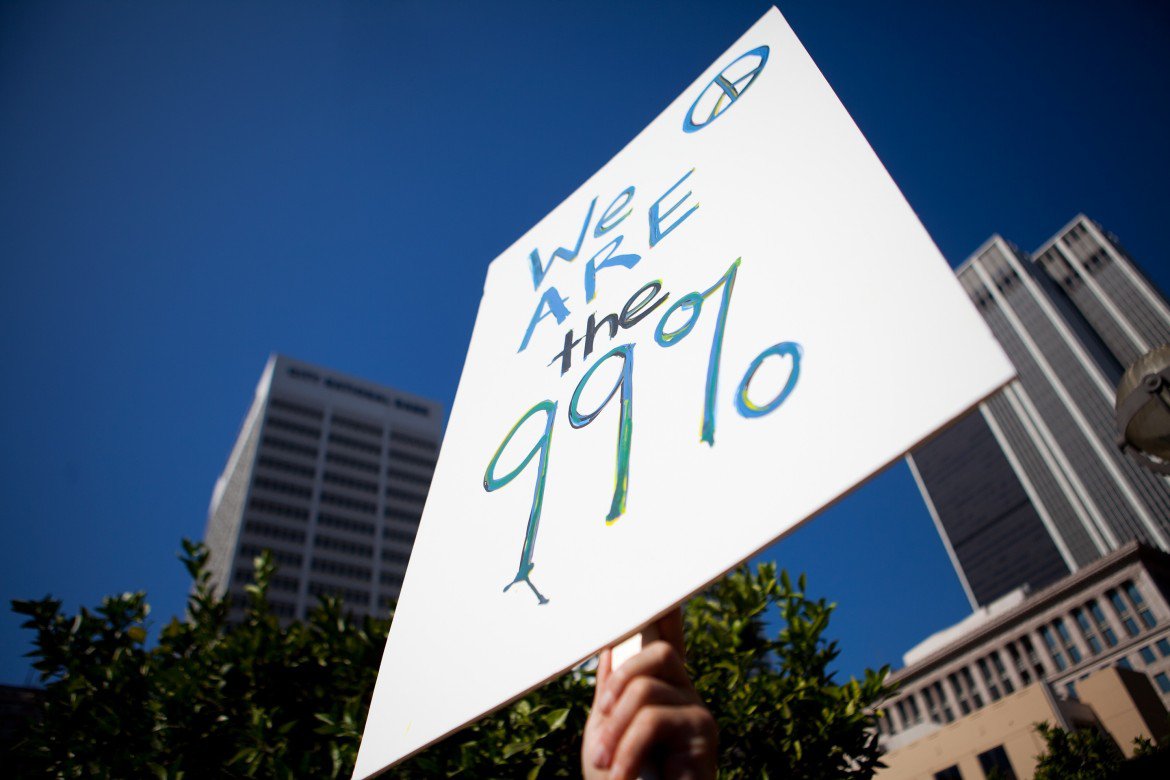One of the most puzzling things about this interminable American election campaign is the way in which the media and much of the Democratic camp have projected an image of the alleged Trump voters as totally alien, or other.
Never mind the fact that this stereotype — white, working class, male, ignorant — does not take into account the electoral base of the Republican candidate, which is unfortunately much more extensive and includes considerable areas of the middle class (in the European sense) who feel precarious and at risk, like the steel town of Youngstown, Ohio.
What is disconcerting is the fact that so long as they have been useful, these figures — white, Anglo-Saxon, Protestant, workers, residents of middle America — have for centuries been identified as the backbone of the country. By failing to recognize this group, liberal America is actually discarding a part of itself, and it bears a heavy responsibility for what these people have become.
As Bruce Springsteen said, they’ve made the establishment liberals “rich enough not to forget my name.” If they don’t remember it, it’s because they don’t want to.
I remember watching television in the homes of mining families (whites and blacks) in Kentucky, and I was often asked why they don’t see their faces on TV? Some time later, in Boston, I saw news (a brief spot on the late-night newscast) of a dramatic miner strike in Kentucky with a map — like you might see accompanying a report of a flood in Bangladesh — necessary to make it clear to the East Coast audience where exactly was this exotic, unknown place.
These hillbilly mountaineers were romanticized (falsely) as “pure Anglo-Saxon blood,” and at the same time vilified (also falsely) as the rapist in Deliverance. They’re the poor character to whom we offer help and sympathize with because they can’t do it themselves, or they’re the lawless smugglers of illegal whiskey (today it would be marijuana).
Now the mines are closing, and the coal that was their life, their pride and their identity is no longer the energy America runs on. Rather, it’s a threat to the environment (because of this they’re convinced Obama is waging “a war on coal” and no one — absolutely no one — has bothered to think about what these people might do instead or propose alternate possibilities for them.
A report in The New York Times talks about them with the wonder of one venturing into the heart of an alien continent. They know very well that it will not be Trump who magically reopens their jobs at the mine, but many of them will vote for him, if only in frustration.
Yet this was not inevitable.
These same realities have been the spearhead of American trade unionism (their song, “Which Side Are You On?” was sung at Occupy Wall Street). It was the heart of this region, in West Virginia, in the poorest, whitest and mine-dependent of all states, that swept Kennedy to the presidency.
They are prone to racism, like so much of America, yet it was because of their unions that whites and blacks were first treated as equals in the workplace.
But since at least the 1970s the union has abandoned them, convinced that the only way to save a few jobs is to align with corporate strategies that destroy both employment and the environment.
The Democratic Party has long ceased to consider the workers their electoral base, and it helped to weaken and subordinate their unions. Barack Obama had promised to eliminate some of the bureaucratic bottlenecks that hinder the free choice to join a union, but once elected he forgot. In other words — and very well put it in a recent book by Thomas Frank — if so much of the working class is under the spell of Reagan and Trump it’s because the institutions they helped to create have left them behind.
The “Reagan Democrat” and “Trump Republicans” are largely a creation of the liberals. Yet they are not completely gone: Polls showed that at least part of the Trump voters would be willing to vote for Sanders, who at least gave the impression of talking to them — and saying things very different from Trump.
Now it’s done, and I hope Tuesday the lesser (but still significant) evil will prevail. But these people won’t disappear. Most electoral systems deny representation to the marginalized and disgruntled. More discontent will take other forms. It’s bound to manifest itself in other ways.
The miners of West Virginia and Youngstown will continue to live in the land of the free, to have the right to vote, of speech, of religion. But more and more we realize that these are academic rights, that when they use them they have no real impact on their lives or their economics. For real impact, they gravitate toward their weapons, virtually the only constitutional right they can exercise. I do not think that the (not so) veiled threat of armed insurrections and revolts by Trump followers is realistic, although I’m sure there will be a general increase in violence.
But if we do not begin now to relearn the names of these forgotten and stigmatized people, to turn to them as citizens with rights that matter, something more serious and deeper will happen: a growing distancing of more and more citizens from the institutions of democracy. There will be a worsening of the oligarchic power that’s already manifesting, albeit in different ways, in both candidates. And no one knows what that could look like in the years ahead.

